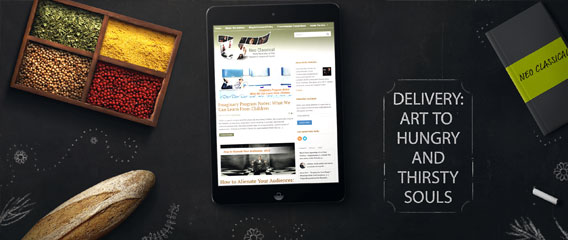It’s fun to reverse engineer a piece of music. As college music students, we did this on a daily basis for Music Theory projects. Ripping a piece of music down to just the chord structure took much of the mystery away; it was almost disappointing to unveil the mystery of my favorite compositions.
But once you take music apart and put it back together again, you often have a different opinion or vantage of it, a clearer understanding and a thoughtful appreciation of it. If only it was that easy to demystify the performers.
There have been a number of articles about issues performers deal with during their careers, mostly performance pressures.
Looking at recent articles about alcohol and drug abuse in the symphony, the ongoing controversy to use beta-blockers or not, and the debate whether memorization for solo performances is necessary or not, there is an underlying theme of how we deal with pressures on stage.
In reading about the ways pressure is handled in each of these articles, there seems to be a common denominator of self-doubt, fear, pressure for perfection, stage fright, etc. and what mechanism was used to alleviate the problem.
But there has to be more in the equation. So while reverse engineering what could cause fear and pressure in my own career, it dawned on me what was missing for many of us. We never really teach young performers that they are humans performing for humans and the whole point of music is to evoke a human emotion.
Instead we teach how to play as perfectly as possible. And while that is a good goal, there needs to be a counter balance, a human element. But just how does one instill that into a young mind before the stage-fright sets in, before the worry and anxiety takes over, and before serious consequences happen?
Perhaps the answer has been sitting untaught and ignored for decades. Below is a quote from violinist Maud Powell, who was one of the first notable female violin soloists in the late 1800s.
Long before a girl of the right caliber has completed her studies, she should have received the baptism of her vocation – the words ‘fame’ and ‘greatness’ should have disappeared, to be replaced by truth and art. She must be a worshiper of the thing itself. Her ambition should no longer be to excel but to deliver the message of the musician. Her own greatness should count for nothing beside the greatness of her art. It never occurs to me to ask myself if I have achieved greatness or fame, but I do realize with a thrill of wonder and delight that after long, long years of praying and fasting in the temple, I am able to deliver the message of my art to hungry and thirsty souls.
In other words, musicians need to a gentle reminder that what they do is for the sake of fellow human beings seeking the enjoyment and enrichment of art. There are plenty of tragic stories of fantastic artists who were victims of nerves and pressures that could have been prevented.
A few notable victims were Michael Rabin and his “mother from hell”, and Josef Hassid whose memory lapses chiseled away at his future performances, and Eugene Fodor, who resorted to drugs and alcohol to deal with a career that seemed disappointing to himself. So clearly it’s not just the musicians that need this reminder, it’s the parents, teachers, colleges, critics, and colleagues. What Maud Powell said was spot on and I hope her wise words find their way into the ears of young musicians everywhere.











1 thought on “Delivery: Art to Hungry and Thirsty Souls”